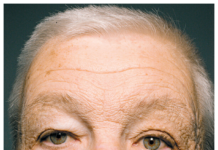A form of gene therapy for hemophilia A increased levels of factor VIII in more than 80% of trial participants.
According to a study published in New England Journal of Medicine, a new form of gene therapy might finally provide people with hemophilia A some relief. The phase 3 trial assessed the effectiveness of valoctocogene roxaparvovec among 132 men. Valoctocogene is an investigational gene therapy that targets factor VIII complementary DNA expression in the liver. Deficiency of factor VIII levels is a hallmark of hemophilia A.
If approved, this first-generation gene therapy would offer a new choice for care that could be truly transformative and liberating for eligible men with hemophilia.
Dr. Courtney D. Thornburg, study author
Hemophilia is an X-linked bleeding disorder caused by mutations in factor VIII genes. As a result, people present with spontaneous bleeding episodes, easy bruising, and joint pain. In severe form, complications such as joint hemorrhage, osteoarthritis, and hematomas at various sites can develop. Although factor VIII infusions and treatment with monoclonal antibody emicizumab are highly effective, they are extremely costly and associated with breakthrough bleeding. Therefore, researchers have been exploring gene therapy for hemophilia.
Treatment Decreases Bleeding Epsiodes in Patients
A team of international researchers administered a single valoctocogene roxaparvovec infusion to study participants with severe hemophilia A. They monitored the patients for a year, assessing their factor VIII levels and signs of the disease. After a year of infusion, 88% of the trial participants demonstrated high enough factor VIII levels to classify them as having mild or no form of the disease. Moreover, all reported a decrease in bleeding episodes. However, 16% of the patients experiences serious adverse events. These included elevated liver enzymes, headache, and nausea.
Additionally, study authors noted a drop in factor VIII levels in the second year of follow up. Despite the drawbacks, researchers are encouraged by the results. While complete elimination of factor VIII replacement therapy is not yet possible, gene therapy can likely decrease the need of regular preventive treatments.
Reference:
Margareth C. Ozelo et al, Valoctocogene Roxaparvovec Gene Therapy for Hemophilia A, New England Journal of Medicine (2022). DOI: 10.1056/NEJMoa2113708




